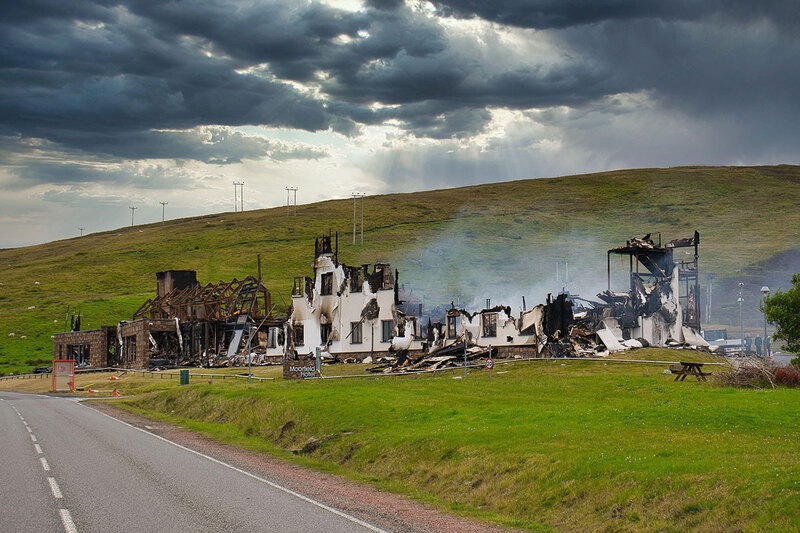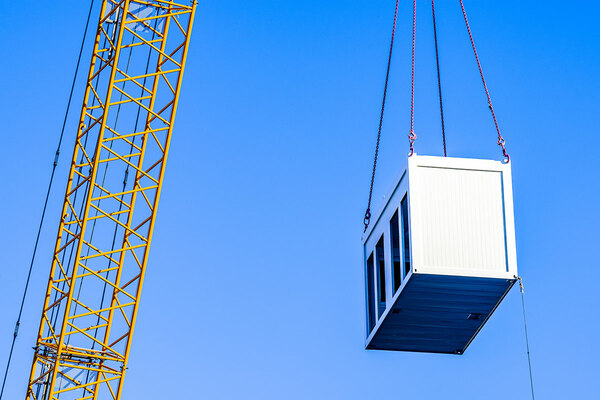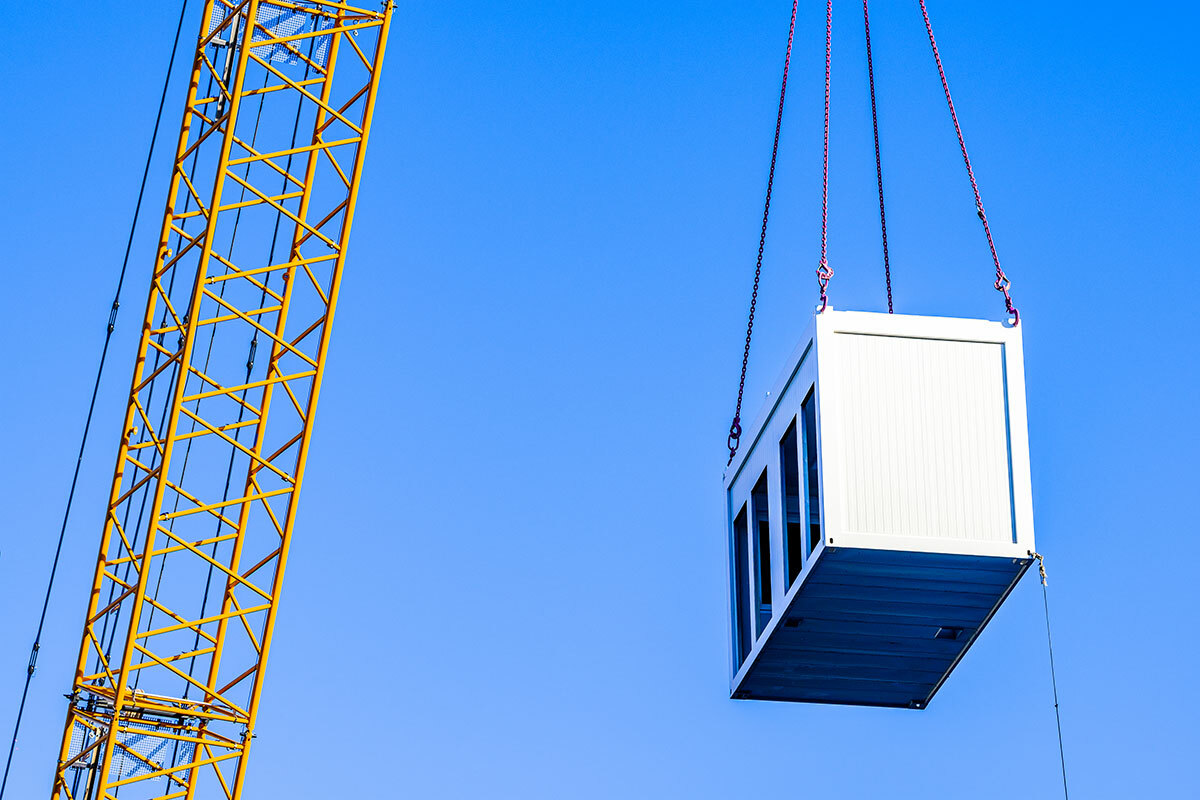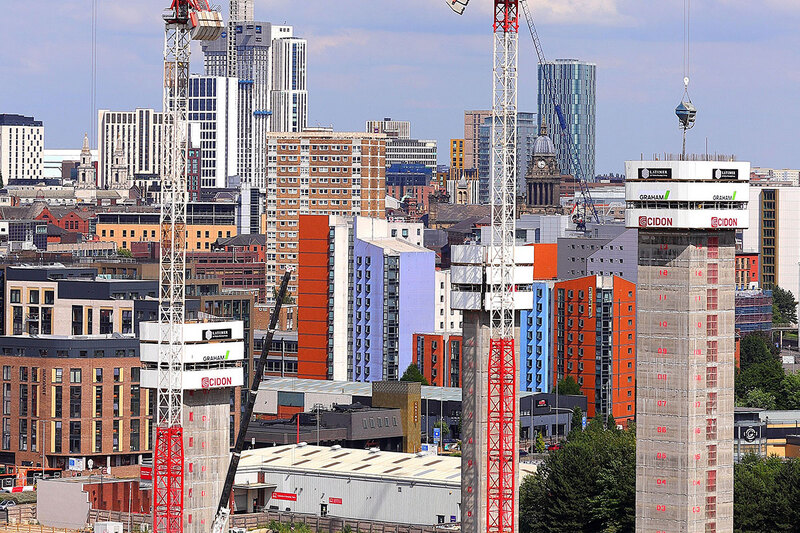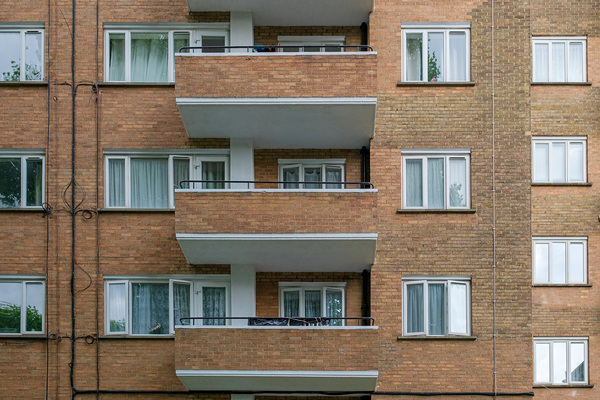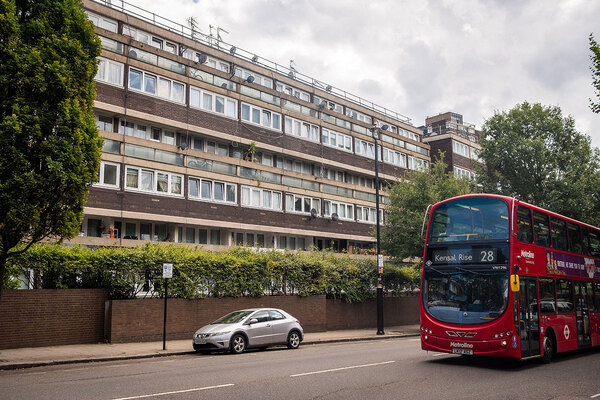Government accused of ‘suppressing’ report into safety of modular building
The government has been accused of “suppressing” a report it commissioned into modern methods of construction (MMC), which leaked emails show was delivered in July 2022 and raised concerns about fire safety and structural integrity.
The report, prepared by academics at Edinburgh Napier University and Harlow Consulting, assesses the risks associated with ‘volumetric’ modular construction, where whole housing units are made in a factory before being assembled into a structure on a building site.
The government has been a major supporter of this form of construction, investing in it through Homes England and ordering its strategic partners to build at least a quarter of their homes using MMC.
But emails seen by Inside Housing show officials in the Department for Levelling Up, Housing and Communities (DLUHC) informed ministers that the report had been received on 27 July 2022.
A covering email said it “identified potential risks that may occur in volumetric modular construction including those relating to fire safety and structural integrity”.
The email said the report “includes a summary of the findings and recommendations to address the gaps identified”.
It said the department would be “in a position to publish the report, and a roadmap in response to this by September”.
But a further email, sent from the office of Marcus Jones, the housing minister at the time, on 13 August 2022 said he “finds the report very worrying” and suggested “the first priority should be checking current stock to gauge risk”.
It added: “He also agrees that the report should not be published until we have done field checks.”
A response from officials on 15 August noted that “the government does not have powers which would enable it to carry out investigative checks on buildings which have been built unless we have the consent of the owners”.
A year on from this email chain, the report has not been published and two sources with knowledge of the work of the department told Inside Housing it was actually being “suppressed” to prevent damaging headlines for the under-pressure industry.
The modular housing sector has been under significant pressure this year. Sector leader Ilke Homes entered administration and L&G, which had put enormous investment into its modular factory in Leeds, announced plans to shut its operation down.
One expert source told Inside Housing that they found the failure to release the report “shocking”.
“We have a long history in this country of experimenting with new construction methods but not regulating them properly, and then finding out we have a major problem years down the line when many homes have been built and occupied,” the source said.
“We need to learn from those mistakes and not repeat them, which is why it’s important to research the risks of any new technology and regulate them properly.”
Edinburgh Napier and Harlow were commissioned to write the report in 2021. It is understood the Department commissioned further research and advice from the Building Safety Regulator (BSR), which it says is to better understand the theoretical issues outlined in the report.
It is understood the BSR research will conclude shortly and the details of the report will be published after this.
While modular housing is a relatively new technology in the UK, it has been used to build high-rise residential towers of more than 40 storeys in some projects.
Fire chiefs raised concerns about the housebuilding method in December. A National Fire Chiefs Council (NFCC) spokesperson said: “To ensure the industry is not creating legacy building-safety issues, additional safeguards are needed to ensure there is not an influx of potentially unsafe MMC buildings being constructed while necessary regulatory reforms are in progress.”
The NFCC said it had “repeatedly” expressed concerns over the lack of large-scale fire-test research and data in the fledgling sector.
Experts have pointed to the risk of large cavities being created where the volumetric boxes are linked together, which may not be properly fire-stopped on the building site.
On the Shetland Islands, where there has been an increase in modular construction in recent years because of difficult building conditions, there have been two major fires that resulted in a total building loss.
In October 2020, housing association Notting Hill Genesis was required to evacuate 858 residents from a modular development in west London, after intrusive inspections identified fire-safety issues so serious that the safety of residents could no longer be guaranteed.
In January 2023 the government began work with the British Standards Institution (BSI) and industry to develop PAS 8700, a new standard for the wider MMC sector, including volumetric modular construction.
The Conservative Party made manifesto commitment to support the use of MMC to aid its housebuilding ambitions, and its work so far has focused on removing barriers to growth.
A DLUHC spokesperson said: “Government takes its responsibilities for ensuring homes are safe for people seriously. It is not unusual for government to commission research to inform future policy.”
Sign up for our fire safety newsletter
Already have an account? Click here to manage your newsletters
Related stories
